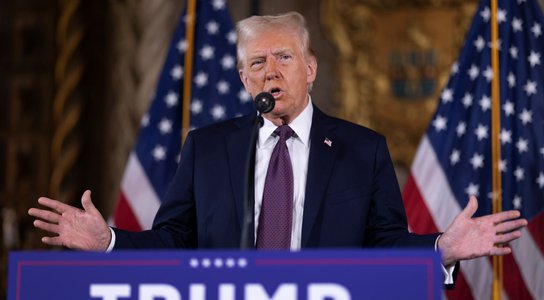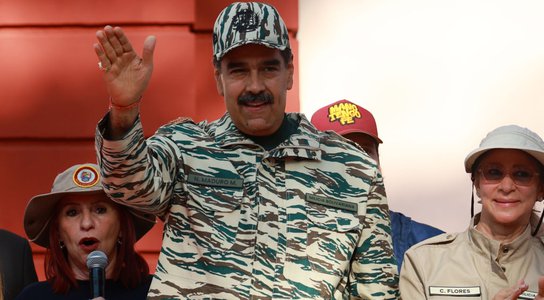The German government is in a bind of its own making. Russia, seeking to weaponise German dependence on its gas, is using a series of maintenance and repair manoeuvres to force Germany to weaken the Western sanctions regime – and Berlin is going along with it.
On Sunday evening, the
Ukrainian government issued a withering condemnation of a deal between the German and Canadian governments
which would allow Siemens to export banned technology in the form of a gas
turbine to Russia for supposed maintenance of the Nord Stream 1 pipeline. Kyiv
asserts that it was an “adjustment of the sanctions regime to the whims of
Russia” that violated international solidarity and increased impunity for
Russian aggression.
According to GTSOU, which
runs Ukraine’s gas system, Russia has spare capacity in other pipelines and
could continue to supply Germany with gas without the delivery of the turbine.
Instead, Putin is using maintenance of the infrastructure that carries its
fossil fuels to Europe to force Germany’s hand, gambling that Germany will in
the end prioritise cheap gas. To nobody’s surprise, on Wednesday, Gazprom
stated that even with the return of the ‘critical’ turbine, they could not
guarantee the proper functioning of Nord Stream 1.
The situation has
highlighted the intricacies of European and Russian dependencies: EU countries
are reliant on Russian fossil fuels for their energy needs, but at the same
time the Russian fossil fuel industry is beholden to the Western companies’ oil
and gas technology that is difficult or impossible to source elsewhere.
Conversations around Russian
energy sanctions tend to focus on import bans: what is prohibited to flow out
of Russia and into the West. This focus on the most visible dependency, the one
we in the West feel most acutely, makes sense – import bans are the most
immediate mechanism we have to stop the stream of European money to the
Kremlin. Less attention has been paid to export bans, concerned with the goods
and services that are prohibited to enter Russia from Western nations. Because
American and European companies proactively built Russia’s fossil fuel
infrastructure, it is these restrictions that threaten the long-term viability
of Russian energy exports.
For years Russia tethered
its future as one of the world’s largest oil producers to expansion into the
Arctic. As the nation’s more central oil fields have declined, focus has turned
north to the far reaches of Siberia where hostile conditions and lack of
existing infrastructure makes oil production highly technical and complex.
Despite the exorbitant cost of accessing these unconventional sources of
energy, Western companies, among them oil majors Shell, TotalEnergies, and
ExxonMobil, eagerly flocked to the Russian Arctic providing critical
technology, financing and expertise to enlarge the country’s production.
From exploration, to
drilling, to extraction, Western companies have been uniquely responsible for
securing Russia’s prominence as a global energy giant, and without them, the
industry will struggle. Of particular importance are American oilfield
servicing companies Halliburton, Schlumberger and Baker Hughes, which are
gatekeepers to now-sanctioned technology that Russia needs to maintain and
expand production. Speaking to Russia’s dependence on Western companies for its
gas output, Senior Rystad Energy Analyst Daria Melnik stated “We don’t have our own technology, we don’t have our
own equipment, we don’t even have gas turbines or LNG tankers”, a reality that
was made all too clear during the wrangling over the Siemens turbine.
Germany’s scramble to return
the turbine to Russia began in June when Gazprom reduced gas flows through Nord
Stream 1 by 60% of normal capacity, saying they needed the component which had
been sent to Montreal for repairs and was subsequently stranded by sanctions.
German government officials recognised that Russia’s demand was a poorly
disguised tactic to exert pressure and push up prices, with German economic and
climate minister Robert Habeck calling the request a “pretext” for an economic
attack. Despite this recognition, and Habeck’s warning that Russia would likely
just find another technical excuse to discontinue gas supplies, the German
government sprang into negotiations to push Canadian allies to deliver on
Russia’s request.
The exemption granted in the face of Ukrainian opposition is emblematic of other inconsistencies in Europe’s response to Russia’s invasion, not least their continued funding of a war that they vehemently condemn, and which is costing them dearly. Russia may well turn off the taps completely this winter. For many countries, they already have. It is no fairer to leave people in energy poverty vulnerable to the whims of a dictator than it is for Germany to proactively cut gas supplies from Russia. Europe has better alternatives: rapidly upscaling the use of renewable energy – which is cleaner and cheaper – and simultaneously reducing consumption. By submitting to Russian extortion Germany is tinkering around the edges and weakening the collective effort against the war, when they should be boosting insulation, upgrading energy efficiency, and expanding renewables well before winter begins.
Author
-
Mai Rosner
Senior Campaigner - Fossil Fuels


